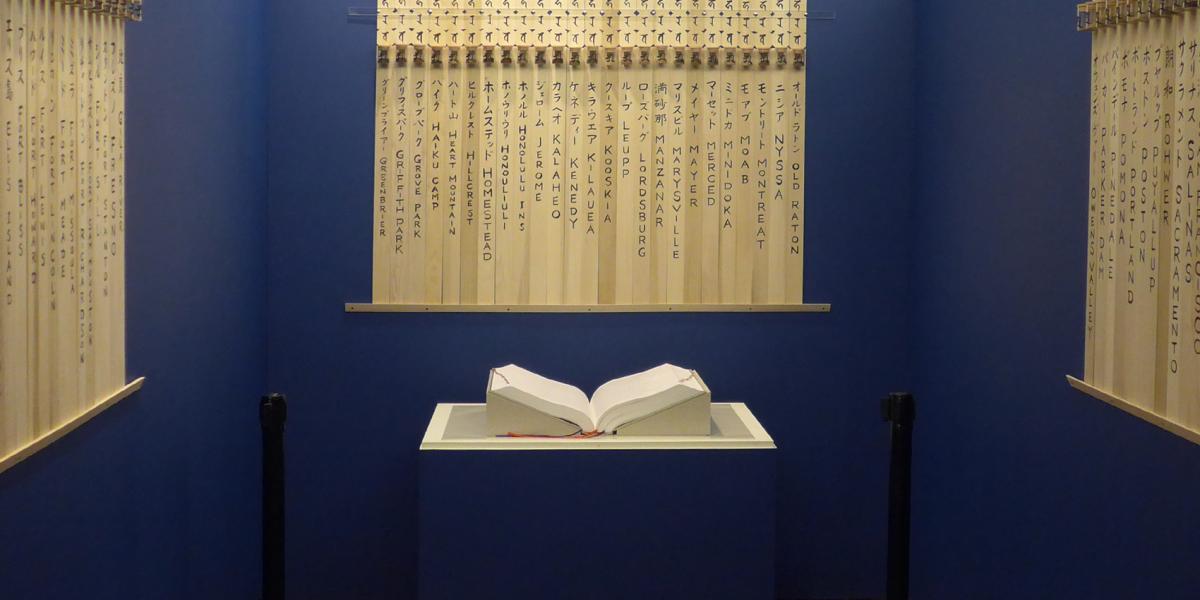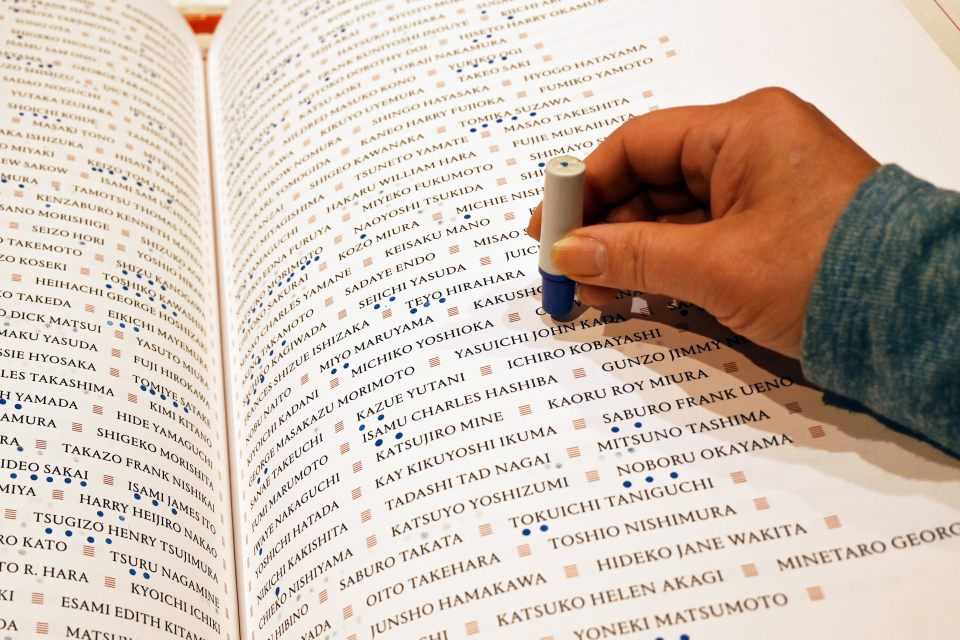

Now Traveling!
Check the Venues page to see where the Ireichō is traveling.
Irei: National Monument for the WWII Japanese American Incarceration is a multi-faceted project to address the erasure of the identities of individuals of Japanese ancestry who experienced wartime incarceration and to expand the concept of what monument is through three distinct, interlinking elements: a sacred book of names as a monument (Ireichō), a website as a monument (Ireizō), and light sculptures as monuments (Ireihi).
The project is funded by the Mellon Foundation and led by Duncan Ryuken Williams, professor of American Studies & Ethnicity and Religion at USC and director of the USC Shinso Ito Center for Japanese Religions and Culture, and Project Creative Director, Sunyoung Lee.
The Ireichō contains the first comprehensive listing of over 125,000 persons of Japanese ancestry who were incarcerated in US Army, Department of Justice, Wartime Civil Control Administration, and War Relocation Authority camps. Embedded into the very materiality of the Ireichō are special ceramic pieces made from soil collected by the project from seventy-five former incarceration sites from Alaska to Hawai‘i, Arkansas to California, and from almost every other region of the United States.
The Ireizō lists those names online at ireizo.com. Visitors can search for the person’s name by name, birth year, or camp.
The Ireichō was at the Japanese American National Museum October 11, 2022 – December 1, 2024. It is now traveling across the United States throughout 2025 for additional stamping opportunities. Visit the Venues page for the schedule of upcoming dates.
This is a carousel. This section contains multiple slides with links to event related exhibitions. Use the left and right arrow buttons to navigate.

